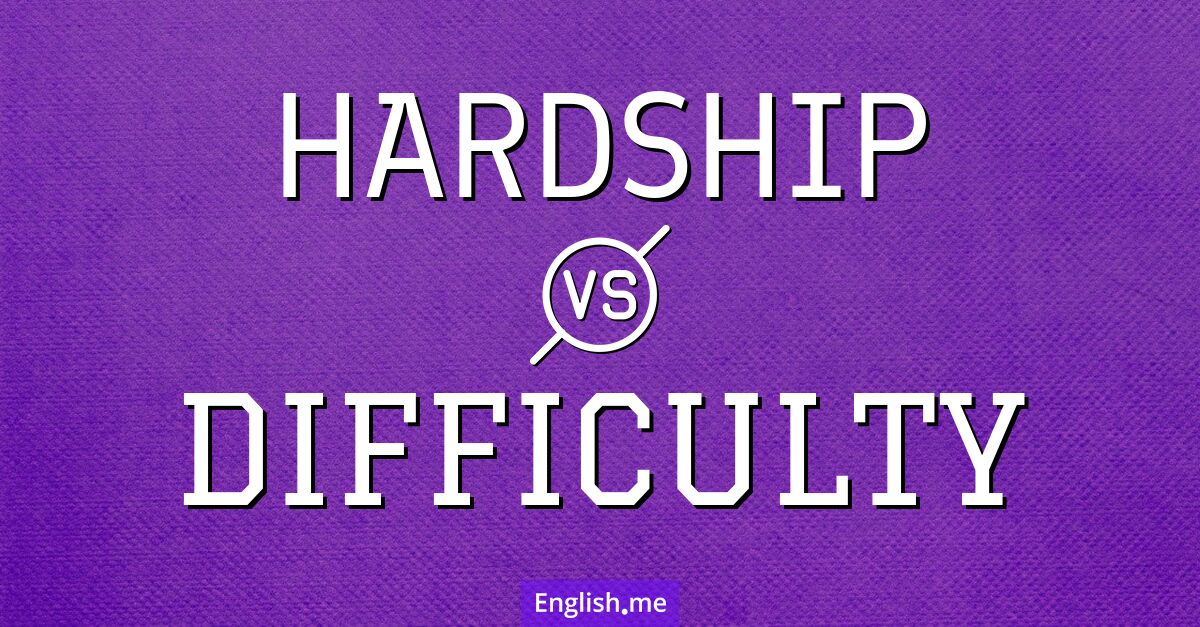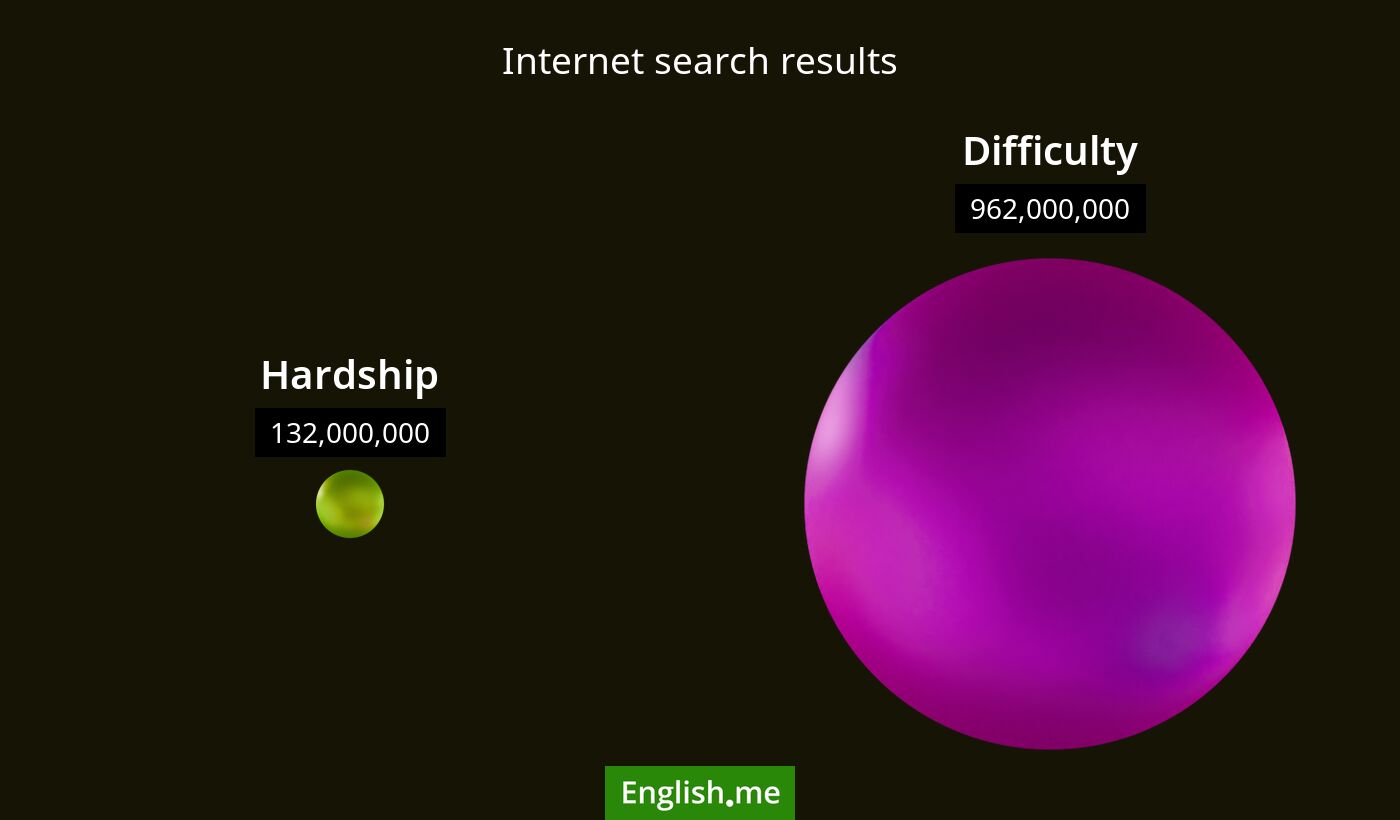"Hardship" vs. "difficulty": exploring the nuances of struggle
Reviewed and edited by  Anwar Kareem 10/10/2024, 01:13
Anwar Kareem 10/10/2024, 01:13
English.me team member

 What is similar?
What is similar?
Both "hardship" and "difficulty" refer to challenging or adverse situations that require effort to overcome. They can be used interchangeably in some contexts to describe struggles or obstacles someone faces.
 What is different?
What is different?
The word "hardship" often implies a prolonged, more intense challenge that may relate to basic needs or survival, such as financial hardship. It can connote a more serious, adverse condition. "Difficulty" can refer to any problem or obstacle that causes trouble or requires effort to solve, but it doesn’t necessarily imply severity or prolonged duration and can describe both minor and significant challenges.
 Which one is more common?
Which one is more common?

 Examples of usage
Examples of usage
Hardship- The family faced great hardship after the loss of their home.
- The immigrants endured hardship during their journey.
- Financial hardship was a constant struggle for the community.
- She had difficulty understanding the complex instructions.
- There was a difficulty in scheduling the meeting.
- He faced difficulty in learning the new language.

 English
English español
español française
française italiano
italiano deutsche
deutsche 日本語
日本語 polski
polski česky
česky svenska
svenska Türkçe
Türkçe Nederlands
Nederlands